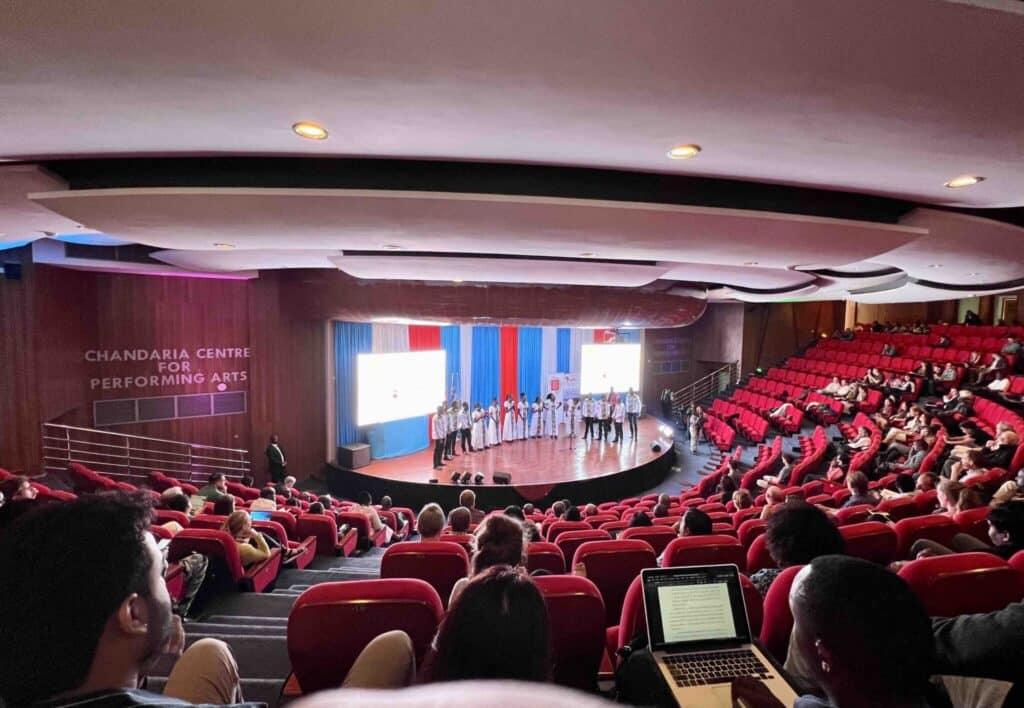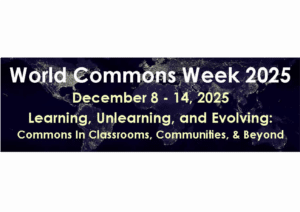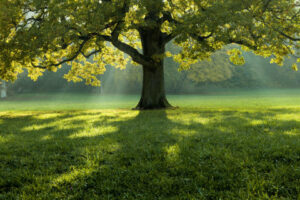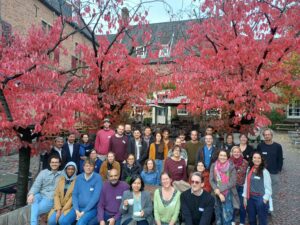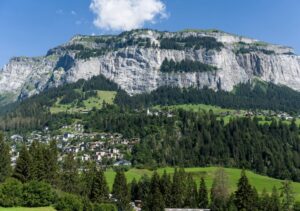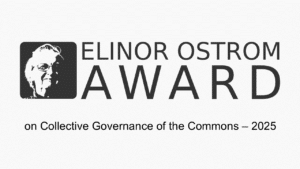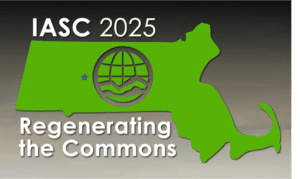At the XIX Biennial IASC Conference titled “The Commons We Want: Between Historical Legacies and Future Collective Actions”, taking place between the 19th and 24th of June, 2023 in Nairobi, Kenya, Zafar Saydaliev, representing Culture Goes Europe e.V., delivered a presentation focusing on non-formal educational (NFE) methodologies and study tours as a means of bolstering local commons. In the context of fostering behavioral change, the efficacy of NFE tools becomes particularly pertinent. As part of the dissemination efforts for the PLANET4B project, aimed at promoting active decision-making concerning biodiversity, the attendance of the conference and the subsequent presentation served as significant components.
Non-formal education plays a crucial role in addressing the behavioral transformation of urban youth concerning their engagement in biodiversity-related decision-making processes. Unlike formal education, which follows structured curricula and is often confined within traditional classroom settings, non-formal education offers a flexible and experiential learning approach. By incorporating practical, hands-on experiences such as study tours, workshops, and interactive activities, non-formal education creates opportunities for young individuals to develop a deeper understanding of complex issues like biodiversity conservation.


In the context of the PLANET4B project, non-formal educational methods and study tours become relevant as they facilitate direct engagement with real-world biodiversity challenges. Through experiential learning, urban youth can witness the consequences of various decisions on local ecosystems and communities. This approach enables them to appreciate the interconnectedness between human activities and biodiversity conservation, fostering a sense of responsibility and empowerment to make informed choices.
Moreover, non-formal education can effectively address the specific needs and interests of the urban youth audience. By incorporating interactive elements and participatory activities, it encourages active involvement, critical thinking, and collaboration among the participants. These attributes are instrumental in cultivating a greater sense of ownership over decision-making processes and enhancing the likelihood of behavioral change towards more sustainable practices.


Ilkhom Soliev, the coordinator of the PLANET4B project from Martin Luther University Halle-Wittenberg (MLU), together with Agnes Zolyomi and Alex Franklin of Coventry University, chaired two special panels dedicated to the transformative interventions for equitable and sustainable governance of biodiversity commons. The presentations included works by fifteen researchers and practitioners on transformative interventions. Ilkhom Soliev presented a newly developed reflexivity-contextualization matrix that aims to help analysts to make sense of different intervention methods. Agnes Zolyomi presented review results from an analysis of multi-country evidence on the impact of using the ecosystem services approach, which showed how this approach, initially developed to accelerate policy impact, so far has generated very little evidence in practice. Naira Dehmel of King’s Colleague London reported on the global meta-analysis of participatory governance assessments in conservation areas. Sven Grüner and Frauke Pirscher of MLU provided insights into a nudging experiment to understand biodiversity prioritization in the context of multiple crises. Sumita Sindhi Indian Institute of Management Sambalpur and Pranab Choudhury of Intellecap presented an experimental case of cross-sectoral partnership from Odisha, India, highlighting how synergies between sectors and actors can facilitate both livelihood and conservation goals.
Finally, of particular interest for us as an organization working on NFE methodologies was also another presentation led by Ilkhom Soliev on the creation of an experiential game aimed at enhancing the prioritization of biodiversity in decision-making processes. Collaborating with Michał Pająk of Wroclaw University of Economics and Business and Marco Janssen of Arizona State University, the presentation shed light on the innovative approach of using a behavioral game as a means to engage participants actively in understanding the significance of biodiversity and making informed individual-to-institutional choices in its favor. By adopting an experiential learning format, the game seeks to trigger a deeper reflection on biodiversity as a social-ecological system and its multifaceted implications, thereby fostering a more conscious and proactive approach to decision-making.
Overall, exchange with and feedback from a multitude of experts from around the world during the XIX Biennial IASC Conference in Nairobi gave us further confidence that the use of non-formal educational methodologies and game-based interventions does indeed hold substantial potential in advancing the knowledge and practice on biodiversity prioritization, key objectives of the PLANET4B project. By fostering informed decision-making among urban youth on biodiversity conservation, non-formal education contributes significantly to nurturing a generation of environmentally conscious and proactive individuals capable of addressing the challenges of sustainability in their communities.
![]() PLANET4B receives funding from the European Union’s Horizon Europe research and innovation program under grant agreement No 101082212.
PLANET4B receives funding from the European Union’s Horizon Europe research and innovation program under grant agreement No 101082212.


